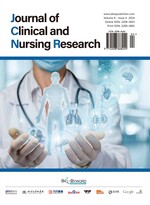Abstract
Objective: To investigate the impact of excellent event management in improving patient safety and nursing staff care satisfaction. Methods: The study was analyzed by retrospective comparison, and routine management from January 2022 to December 2022 was set as the control group, and excellent event management from January 2023 to January 2024 was set as the study group. The differences in nursing outcomes between both groups were compared. Results: The rate of adverse events in the study group (0.61%) was lower than that in the control group (0.96%), and the rate of excellent events in the study group (2.57%) was higher than that in the control group (0.97%) (P < 0.05). Meanwhile, the satisfaction level of nursing safety in the study group reached 98.81%, which was much higher than in the control group (92.21%) (P < 0.05). Conclusion: Nursing excellent event management had a positive impact on improving patient care safety satisfaction, reducing the rate of adverse events, and increasing the rate of reporting excellent events.
References
Liu L, Lu W, Sun Q, et al., 2018, Survey on the Current Status and Influencing Factors of Nursing Staff’s Active Reporting of Adverse Events. Journal of Nursing, 33(1): 58–60.
Liu J, 2023, Research on the Application Effect of Adverse Event Reporting System in Case Room Nursing Management. Chinese Science and Technology Journal Database (Full Text Edition) Medicine and Health, 2023(5): 49–51.
Meng Q, 2018, Exploration of the Role of Nursing Adverse Event Management in Medical Care Quality and Patient Safety Management. Electronic Journal of Clinical Medicine Literature, 5(66): 90–91.
Shi A, Yang C, Yang G, et al., 2023, Survey on the Current Status of Nursing Adverse Event Management in 44 Secondary and Above Chinese Medicine Hospitals in Chongqing. Laboratory Medicine and Clinics, 20(10): 1489–1493.
Chen M, Xie M, Yang S, et al., 2020, Application of SBAR Model in Sharing Learning Management of Nursing Excellent Events. Journal of Nursing, 27(3): 18–21.
Li L, Du X, Wang M, 2023, Analysis of Factors Influencing Clinical Nurses’ Risk Perception of Adverse Nursing Events and Their Impact on Nurses’ Safety Behaviors. General Practice Nursing, 21(29): 4033–4039.
Xie L, Wu Y, Wang X, et al., 2022, A Study of The Impact of Multidimensional Training on Caregivers’ Knowledge and Behavior in The Clinical Management of Falls in Elderly Patients. Health Career Education, 40(11): 103–105.
Chen M, Li Y, Zhao C, et al., 2023, Analysis of the Prevention Effect of Nursing Safety Management and Risk Warning Control System on Adverse Events in Elderly Patients. Nursing Practice and Research, 20(9): 1410–1414.
Yang L, 2023, Analysis of the Impact of Nursing Safety Quantitative Management on Nursing Quality and Adverse Events in Neurology Nursing Management. Heilongjiang Medicine, 47(18): 2293–2295.
Li H, Gan Y, Li Q, et al., 2023, The Effect of Incentive Reporting System in Nursing Safety (Adverse) Event Management. Clinical Medical Engineering, 30(10): 1463–1464.
Chen J, Ju M, Lai J, et al., 2023, Construction and Application of an Intelligent Learning Adverse Event Management System Based on Clinical Knowledge Base. Journal of Nursing, 38(5): 87–91.
He W, 2018, Exploration of the Role of Nursing Excellent Event Management in Medical Care Quality and Patient Safety Management. Primary Medical Forum, 22(3): 304–305.
Luo F, Wang F, 2023, Research on the Practical Application of Structured Adverse Event Management System of Hospital Information System. China Health Industry, 20(15): 163–166.
